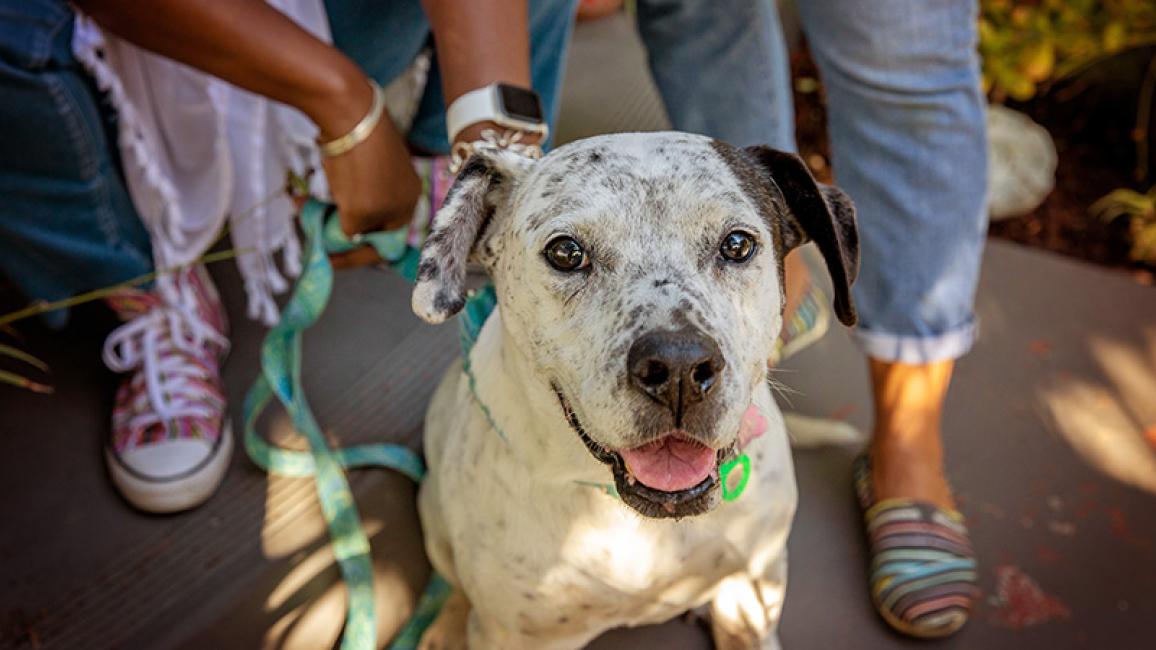Losing your home shouldn’t have to mean losing your pets, too

The following blog was run as a national op-ed on NBC News.com this October. As COVID-19 continues and surges in some areas, housing continues to be a critical issue facing our nation. There are ideas and resources in this blog to help people who have pets and are facing a housing loss, as well as suggestions for housing providers on how they can be a part of the solution.
----------
We know that the U.S. was already experiencing an affordable housing crisis before COVID-19 hit, but now an estimated 30-40 million people (and their pets) are at risk of eviction.
Animal shelter admissions data shows that housing is listed as the second most common reason that people cite when surrendering a pet to an animal shelter, even ahead of financial reasons. As more people face unemployment as a result of the COVID-19 pandemic and the possibility of losing their homes (rented or owned), some will turn to temporary shelters and government housing, where pets are often not welcome.
This leads to two devastating results: (1) People who are already struggling and in need of stability are forced to give up their pets, who are often seen as a source of comfort and are considered members of the family, and (2) municipal animal shelters with already limited budgets and staff are flooded with surrendered pets and forced to kill animals to make space for incoming animals.
In a year when record numbers of people could be facing housing insecurity, we need to make sure that access to housing doesn’t come down to a decision between giving up a beloved family pet and securing a safe place to live.
According to a 2019-2020 American Pet Products Association study, two-thirds of households in the U.S. share their homes with dogs and cats. That’s about 173 million cats and dogs across 81 million households. Equally important to note is the sizable percentage of people with pets who need assistance of some kind and are only one unexpected bill away from a potentially disastrous financial situation.
Affordable housing must be accessible housing for all types of people, and that includes people with pets. Solving this problem is a collaborative effort, and there’s something every single one of us can do to help, no matter our role in the community.
Community members: Contact your local city council representatives and ask them to ensure that government-sponsored housing providers are pet-friendly. Reach out to your local housing authority to see if they have local pet food pantries and low-cost veterinary services. And if you find a lack of those services where you live, think about connecting with like-minded neighbors to fill those gaps.
Reach out to your local animal shelters and human shelters to find out if they have pet foster programs for people experiencing displacement and housing transitions, along with other ways to volunteer or donate to help keep pets with their families.
And, of course, adopting your next pet, rather than purchasing one, helps ease the burden on city and county shelters already struggling and helps save more beloved pets who might have been surrendered because of unexpected financial hardship, health challenges or housing issues.
Elected officials: What are you doing to ensure that your most vulnerable constituents aren’t being forced to choose between their pets and a roof over their heads?
Housing providers: Now is the time to make sure your policies aren’t unintentionally harming or excluding people with pets who need help. For example, now might be the time to ditch arbitrary pet rules like “no cats over 15 pounds” that some housing authorities enforce.
Insurance providers: This is your opportunity to make sure your policies are truly pet-inclusive and pet-friendly. State Farm deserves a round of applause for its track record as the only national homeowner insurance provider with breed-neutral policies for dogs. Policies should focus on responsible pet ownership and dog behavior, not superficial physical traits.
Anyone who has a pet can tell you that pets provide invaluable physical, mental and emotional support. We know there’s a housing crisis coming, and we know it’s those underserved and without a seat at the table who will be hurt most directly. Let's not allow family pets, who provide critical companionship and comfort, to be a part of that devastating equation.
